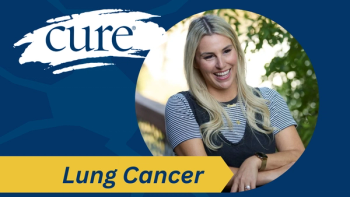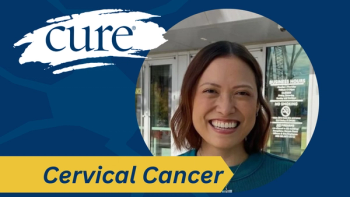
Surveillance Is a ‘Balance of Risk’ and Should Be Considered for Kidney Tumors
Some patients with small kidney tumors may be able to forego treatment and have regular medical checkups instead.
Some patients with kidney tumors can forego the potential risks of treatment and opt for a wait-and-watch approach known as active surveillance. It is important for patients to discuss this option – as well as the potential pros and cons of treatments – with their health care providers, explained Dr. Alexander Kutikov.
Kutikov, chief of Urologic Oncology at the Fox Chase Cancer Center in Philadelphia, recently discussed active surveillance at CURE®’s Educated Patient® Kidney Cancer Summit.
Who Is a Candidate for Active Surveillance?
“Especially with these low-risk, small masses that are less than three centimeters and are not growing while they’re being watched, they’re incredibly safe to monitor and allow patients to really live their life without undergoing the significant risk of treatment,” Kutikov said in an interview with CURE®.
A biopsy should be able to tell a patient if their tumor is malignant or benign, and Kutikov said that about 20-30% of small renal masses are benign. Kutikov said that there are three criteria that clinicians look at to determine if a patient is a good candidate for active surveillance:
- The pathology or type of cells that are present
- How quickly the mass is growing. A mass growing more than five millimeters a year indicates that it might be time to consider treatment.
- How fast the mass is changing
Avoid the Risks of Overtreatment
However, individual patient characteristics come into play in decision making, too.
“Obviously all these things are taken in the context of each patient’s particular situation, their age, their comorbidities – which are basically other medical problems they have – and their personal preferences. It’s a bit of a nuanced conversation with each patient,” Kutikov said.
Patients who are older and frail with multiple other comorbidities may not benefit from treatment, and the potential side effects of cancer-fighting drugs or surgery (usually partial nephrectomy).
Regardless of a patient’s other health situations, treatment can also come with psychosocial consequences, financial toxicity and overall disruption of life, be it taking time off of work or away from family.
What Active Surveillance Entails
Kutikov said that each doctor has a different style and every patient is different, but in general, patients undergoing active surveillance can expect to see their care team about once every six months.
At these visits, the mass will be observed via ultrasound or cross-sectional imaging (CT scan or MRI). If the mass is stable and does not grow in the first five years of surveillance – and about 30% of kidney masses do not, according to Kutikov – the patient may be able to decrease their visits and come, instead once a year.
Neither active surveillance nor aggressive treatment is right for everyone. Kutikov emphasizes that patients need to have thorough conversations with their providers to find the plan that is right for their particular situation.
“I’d encourage patients to make sure that active surveillance is discussed with them, because it’s really an important option and one they should consider,” Kutikov said. “Just like everything in life, this decision is a balance of risk, and everybody manages risks a little bit differently in their life, and that’s understandable, but this is something that they should give some thought to.”
For more news on cancer updates, research and education, don’t forget to




